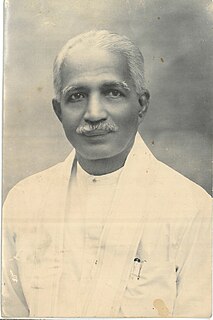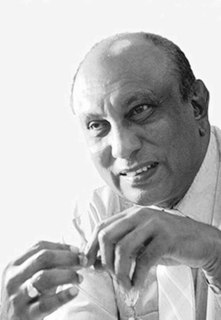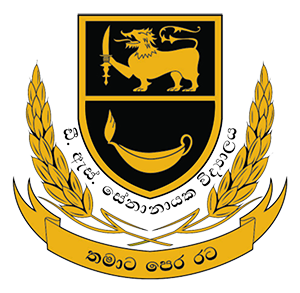Related Research Articles
Sri Lankan English or Ceylonese English is the English language as it is used in Sri Lanka. In Sri Lanka it is colloquially known as Singlish, a term dating from 1972. Sri Lankan English is principally categorised as the Standard Variety and the Non-standard Variety, which is called as "Not Pot English".The classification of SLE as a separate dialect of English is controversial. English in Sri Lanka is spoken by approximately 23.8% of the population, and widely used for official and commercial purposes. Sri Lankan English being the native language of approximately 5400 people thus challenges Braj Kachru's placement of it in the Outer Circle. Furthermore it is taught as a compulsory second language in local schools from grade one to thirteen and Sri Lankans pay special attention on learning English both as children and adults. It is considered even today that access and exposure to English from one's childhood in Sri Lanka is to be born with a silver spoon in one's mouth.

Independent Television Network-ITN is a Sri Lankan state governed television and radio broadcaster located in Wickramasinghepura, Battaramulla, Sri Lanka. It is a Shrama Abhimani Award winner , broadcasts content to a wide demographic within Sri Lanka as well as the expatriate community. The programmes are broadcast in three languages: Sinhala, Tamil, and English. The ITN broadcast coverage extends to 99% of the island of Sri Lanka.

Education in Sri Lanka has a long history that dates back two millennia. While the Constitution of Sri Lanka does NOT provide free education as a fundamental right, the constitution mentions that 'the complete eradication of illiteracy and the assurance to all persons of the right to universal and equal access to education at all levels" in its section on directive principles of state policy at (27. Sri Lanka's population had an adult literacy rate of 96.3% in 2015, which is above average by world and regional standards.Computer literacy in 2017 28.3% and phone users in 2017 105%, website users 32% in 2017 Education plays a major part in the life and culture of the country. which dates back to 543 BC. Sri Lanka's modern educational system was brought about by its integration into the British Empire in the 19th century. Education currently falls under the control of both the Central Government and the Provincial Councils, with some responsibilities lying with the Central Government and the Provincial Council having autonomy for others.

Mahanama College is a Sinhala, Buddhist boys school in Colombo, Sri Lanka which was established in 1954. As a public, national school, it is controlled by the central government, as opposed to a provincial council. It provides both primary and secondary education.

Sri Lankabhimanya Wannakuwattawaduge Don Albert Perera(Sinhala: වන්නකුවත්තවඩුගේ දොන් ඇල්බට් පෙරෙරා;Tamil: டபிள்யூ. டி. அமரதேவா; 5 December 1927 – 3 November 2016) better known by his adopted name Amaradeva, was a prominent Sri Lankan vocalist, violinist and composer. Primarily using traditional instruments like sitars, tablas and harmoniums, Amaradeva incorporates Sinhala folk music with Indian ragas in his work. Many consider Pandit Amaradeva's contribution to the development of Sinhala music as unmatched; hence, he is occasionally cited as the Maestro of Sri Lankan Music .

Dr. Cristopher William Wijekoon Kannangara was a Sri Lankan lawyer and a politician, accredited often with being the Founder of the post independence island nation. Being a not so very distant relation of Sri Lanka's old ruling Imperial Royals, now fully informal, CWW worked with other princely families and Ceylon's traditional nobilty, other impotant members of the self rule movement, as well as the British courtsi in the end to attain the goal of self rule. Rising up the ranks of Sri Lanka's movement for independence in the early part of the 20th century, he moved on to play a pivotal role defending leaders of the independence movement in court and achieving vital legal victories contributing vastly to the cause of independence as a lawyer and orator, soon achieving the Presidency of Ceylon National Congress, the forerunner to Sri Lanka's Parliament UNP. Later, he became the first Minister of Education in the State Council of Ceylon, and was instrumental in introducing extensive reforms to the country's education system that opened up education to children from all levels of society.
Elizabeth Moir Tenduf-La, OBE is a British educationist in Sri Lanka. She founded the Colombo International School, British School in Colombo and the Elizabeth Moir School.

Sri Lanka Law College was established as the Ceylon Law College under the Council of Legal Education in 1874 in order to impart a formal legal education to those who wished to become advocates and proctors in Ceylon. The institute is situated at Hulftsdorp Street in Colombo. The Main Building of the College was constructed in the year 1911.

Mahamaya Girls’ College is a public girls' school in Kandy, Sri Lanka. Located in the centre of Kandy, overlooking the Kandy Lake, the school is named after Queen Mahamaya, the mother of Prince Siddhartha, the Lord Buddha.

Prince of Wales' College is a selective entry boys' school situated in Moratuwa, a suburb of Colombo, Sri Lanka. Prince of Wales' College, Moratuwa, was founded and endowed in 1876 by Sir Charles Henry de Soysa, a famous 19th century Sri Lankan philanthropist. The school became fully government-controlled school in 1962. As of 2016 over 7100 boys are studying in the school in grades 1 to 13 including all main streams of secondary studies which include biology, mathematics, commerce and arts.

Vidura College, Colombo is a private English medium school in Colombo, Sri Lanka. Its current principal is D.G. Sumanasekara.
De Mazenod College (DMC), founded in 1914, is a Catholic school in Kandana, Sri Lanka, managed by the De La Salle Brothers. De Mazenod College is a mixed school and has classes from grade 1 to grade 13. Classes are conducted in Sinhala as well as English. Girls are admitted to the school from grade 6 upwards.

Malaka Dewapriya (Sinhala: මාලක දේවප්රිය, IPA: [maːləkə deːʋaprijə] is a Sri Lankan film maker, visual artist, Sinhala Radio Play writer, short film and video director.

Danister Thomas Fernando is a pioneer Sri Lankan lyricist. Some of the pioneers, whose names most people could not even remember were honoured. The oldest lyricist, D. T. Fernando, was a forgotten name.

Deshanabu Tissa Ananda Abeysekara was a Sri Lankan filmmaker, actor, writer, director, screen playwright and political activist. He is better known as a script writer for the cinema as well as a film director. In 1996, his book Bringing Tony Home won the prestigious Gratiaen Prize for the new creative writing in English. He was the chief coordinator of FOSWAL in Sri Lanka and honoured awardee of SAARC Literary Award.

Royal College is a selective entry boys' school located in Colombo, Sri Lanka. Started as a private school by Rev Joseph Marsh in 1835, it was established as the Colombo Academy by Sir Robert Wilmot-Horton in January 1836, as part of the implementation of the recommendations of the Colebrooke Cameron Commission (1833), and was the first government-run secondary school for boys in the island.

Bolawalana Ave Maria Convent (BAMC) , previously known as Ave Maria Convent Branch School is a catholic girls' school in Sri Lanka. The school is administrated by the Dominican sisters of Malta. There are classes from Grade 1 up to G.C.E. Advanced Level. The school was branched off from Ave Maria Convent, Negombo, and accepted as an independent school in 2014
Bandaranayake Central College, Veyangoda, also known as “Veyangoda Central College (VCC)”, is a National school in Sri Lanka. The school was originally one of the three first Central Colleges established under the education reforms of late Hon. C. W. W. Kannangara, who introduced free education in Sri Lanka. Today about 2640 students are studying from grade 6 to 13 and academic staff of 135 are engaged in the teaching process.
Vicumpriya Perera is a Sri Lankan born mathematician, lyricist, poet and music producer. He has published two books of Sinhala poetry, Mekunu Satahan in 2001 and Paa Satahan in 2013. He has written over 200 songs and has produced eleven Sinhala song albums. He currently works as a mathematics professor in Ohio, US.

D. S. Senanayake College is a boys' primary and secondary national school in Cinnamon Gardens, Colombo, Western Province, Sri Lanka. It was established on 10 February 1967 under the stewardship of R. I. T. Alles, and was named after the first Prime Minister of Sri Lanka, D. S. Senanayake.
References
- ↑ "Interview with Gihan Fernando".
- ↑ "Colombo Ride 3D amongst global top five games". Ceylon Today.
- ↑ "Sri Lanka's first 3D mobile game 'Colombo Ride 3D' opens in Oct". The Sunday Times (Sri Lanka).
- ↑ "Colombo Ride mobile game goes 3D". The Sunday Times (Sri Lanka).
- ↑ "Mashable Awards: Announcing The Full List of Finalists". Mashable.
- ↑ "Aba on your mobile". Daily News (Sri Lanka).
- ↑ "Lions Roar – A game for Sri Lankan cricket fans". Daily FT (Sri Lanka).